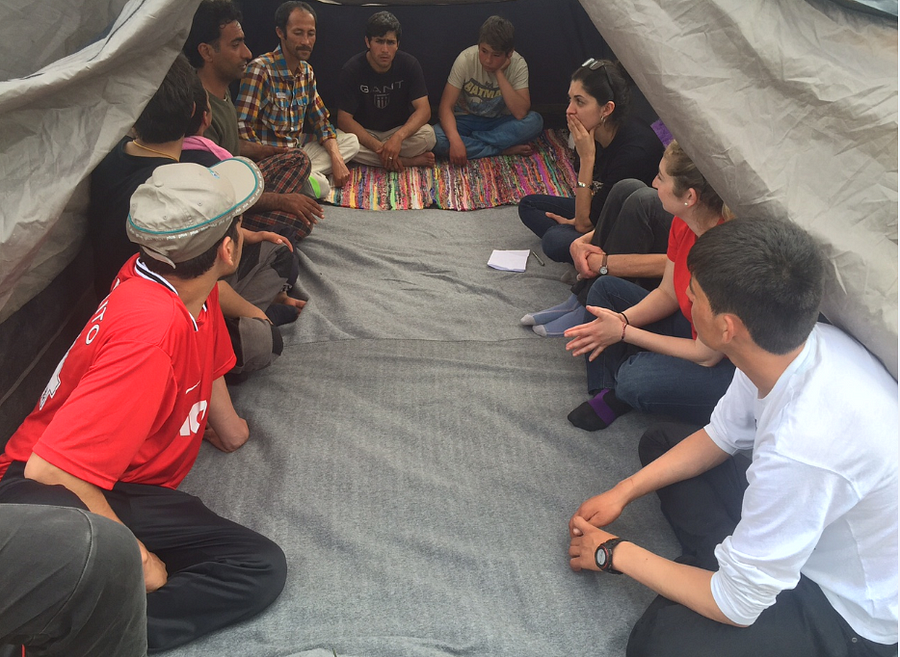Portrait of a GroundBreaker: Zarlasht Halaimzai
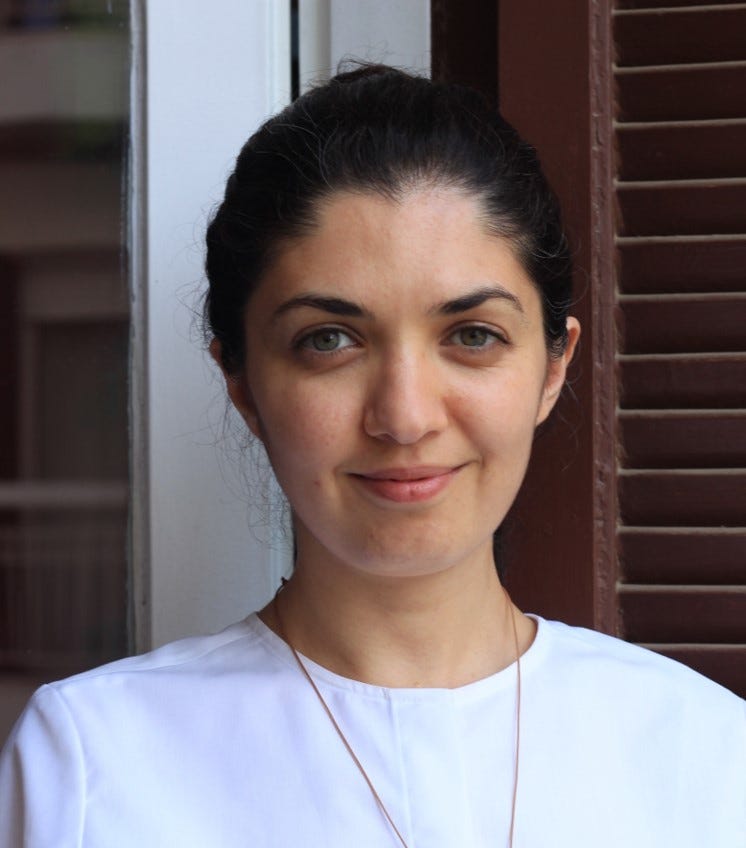
Zarlasht Halaimzai is the Co-Founder of the Refugee Trauma Initiative, a nonprofit providing training and pyschosocial support to refugees, humanitarians, and young people in Greece. RTI promotes trauma-informed models of care for refugees and runs programs including Early Childhood Care and Development, Training and Supporting Humanitarians, Youth Leadership, and Women’s Groups. Zarlasht is a visionary leader within the space of refugee care and is a 2018 Obama Foundation Fellow. Prior to starting RTI, she worked in the U.K., Pakistan, Afghanistan and along the Syrian border to develop resilience through education. On this week’s feature of GroundBreakers’ Portraits of a GroundBreaker Series, our discussion with Zarlasht ranged from RTI’s dedication to strengthening local government capacities to her vision for a holistic paradigm of support for refugee populations centered around trauma-informed and contextualized interventions.
What motivated you to start the Refugee Trauma Initiative?
I am from Afghanistan and was born during the war that is still going on today. I have personal experience of seeing what conflict, violence, and forced displacement can do to people if they don’t have the right support at the right time. These experiences affect people long after they’ve left the place of the conflict and impact relationships and capacities to work and integrate into a new society. The mission of RTI is to provide the support that people in transition need the most.
Before starting the Refugee Trauma Initiative, I was working in Turkey on the Syrian border. Part of my role there was to train teachers so that they were able to continue teaching children in Syria. It was a time when there were daily bombings and so teachers were seeing a lot of trauma in the classroom and didn’t have the skills to address it. They were also going through the same traumas as the children. I saw that there was little specialized support for families in the trauma that they were experiencing.
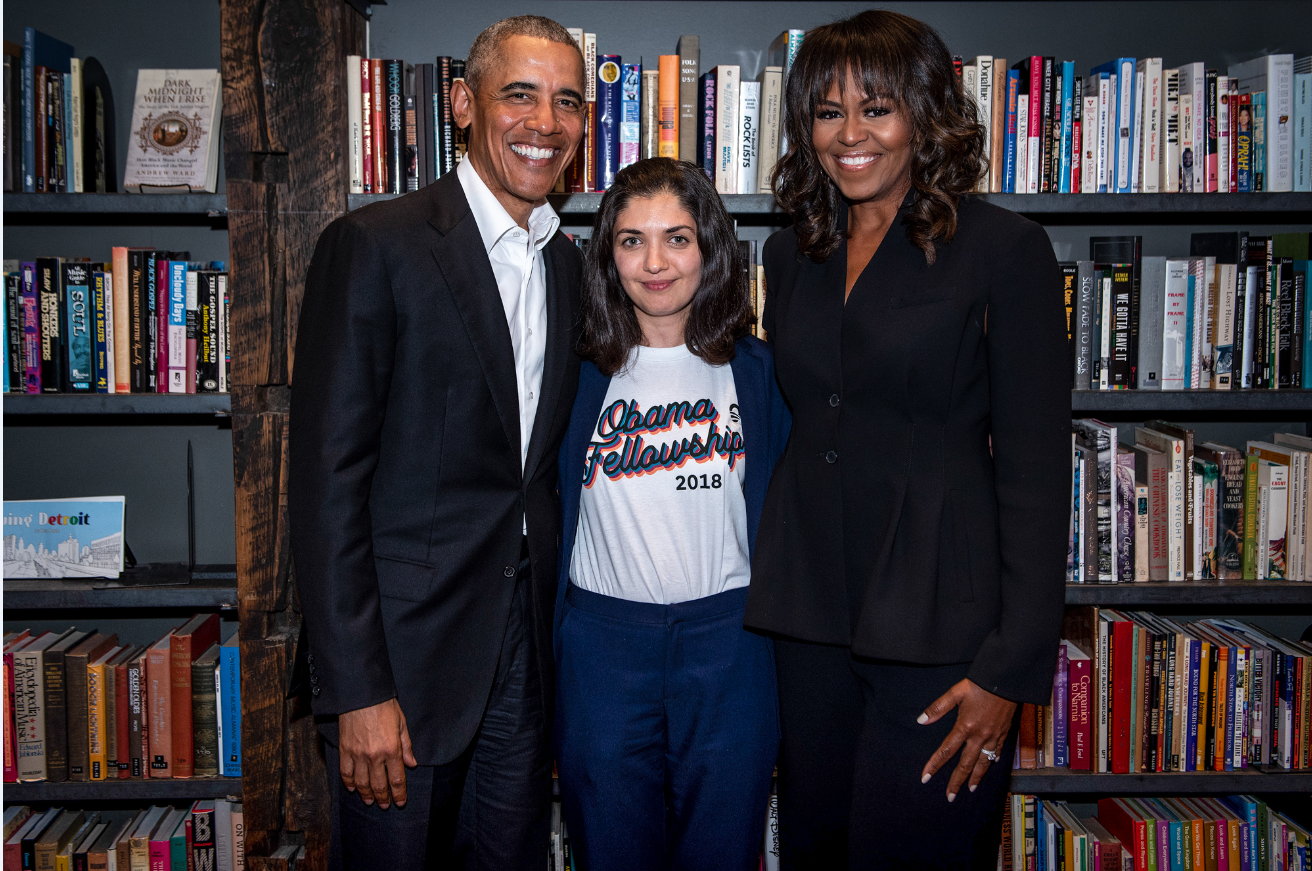
“Refugees are too often defined by their circumstances…These circumstances say nothing about who these people are, their identities, their skills and talents, and what they were doing beforehand. Labels have been imposed on them and they are defined by external forces that don’t reflect internal realities.”
Psychosocial support for refugees is incredibly important but not a priority within the international aid industry. How is the Refugee Trauma Initiative working to promote a new and more holistic paradigm of providing for the full needs of refugees?
RTI is still a new organization but I see advocacy as a big part of our future plans. Psychosocial support and attention to people’s emotional needs and the ongoing impacts of their experiences is not prioritized in humanitarian response and funding flows for refugees.
Psychosocial support should be part of the basic support package for refugees and I see our role as advocating for holistic support. A big part of this is demonstrating with simple interventions to governments and aid organizations that money can be saved with this holistic model, and that psychosocial support makes it easier for a new family to access services and go to work. The capacity to integrate into a new society is very much dependent upon resilience.
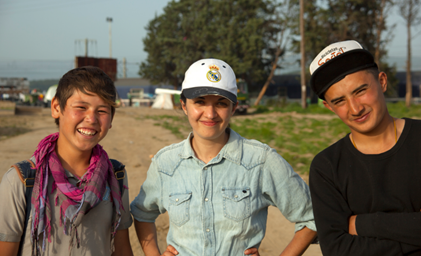
Who are some of the people who inspire you in your work? Some of your mentors?
Greece is a context where there are a lot of volunteer organizations. I’m surrounded by people who are giving of their time, energy, and resources to fill a gap that is not being met by the Greek government. I’m constantly inspired by the determination of ordinary people to help make a difference and that’s where a lot of my energy comes from. I am also inspired by those who have similar values as me and how they are able to live their ethics and convictions. I’m very lucky to be surrounded by many people who have chosen to do meaningful work and live their lives with compassion and empathy.
“We work to create spaces of resilience where people can process their emotions…We are hoping that through setting up these groups, we will become obsolete and this work can go on without external intervention. These principles and motivations guide every project that we do and tailor the projects according to different needs.”
What challenges did you face in starting the Refugee Trauma Initiative?
Starting an organization is a crazy journey and is very demanding both emotionally and physically. I have grown and learned so much but it’s also been a very challenging process. The current political climate and rhetoric not just in Europe but around the world makes it very difficult to advocate for this work. There is a huge backlash against refugees and against refugee care and rights. Advocating for and providing basic wellbeing for refugees is a huge challenge as well as resourcing what we do in the current climate.
Refugees are too often defined by their circumstances and circumstances tell you nothing about who they are as people. Conflict around the world and our current rate of climate change will only create more refugees. These circumstances say nothing about who these people are, their identities, their skills and talents, and what they were doing beforehand. Labels have been imposed on them and they are defined by external forces that don’t reflect internal realities. The media in particular imposes these narratives.
How does RTI leverage partnerships with the public sector in providing services for refugee populations?
The contexts will differ, but in Greece at the moment the government is under tremendous pressure to provide services for both the refugees that have been here for a while as well as the new arrivals. The government is under stress and recovering from a recession in addition to the refugee crisis. We try to add value where we can. Most of our work with local government is about building the local capacity to be able to deliver the services we are currently providing. We are working with local and national governments to embed interventions that address the issues refugees are facing and this means training teachers and frontline workers on how best to provide services for refugee populations.
We recently finished a training with the municipality of Athens, Greece where we conducted a training for teachers working in the refugee camps on the Greek islands. This training was focused on what a trauma-informed model of Early Childhood care looks like. We are focused on providing these trainings for local teachers, doctors, and nurses so that they are able to provide the kind of care that refugees need.
The goal is to create programs that are sustainable. We don’t want to do work according to the current aid paradigm where you go to a country, set up an office, spend a lot of money, and then leave with a gap in services. Such a model creates dependency and does not strengthen the institutions that are needed to provide these services. The big aid agencies working in Greece have lapsed and the services that they were providing were not being catered to Greek organizations that could carry forward this work after they’ve left. We are trying to work differently in that we work with local organizations that can carry forward this work should RTI leave Greece.
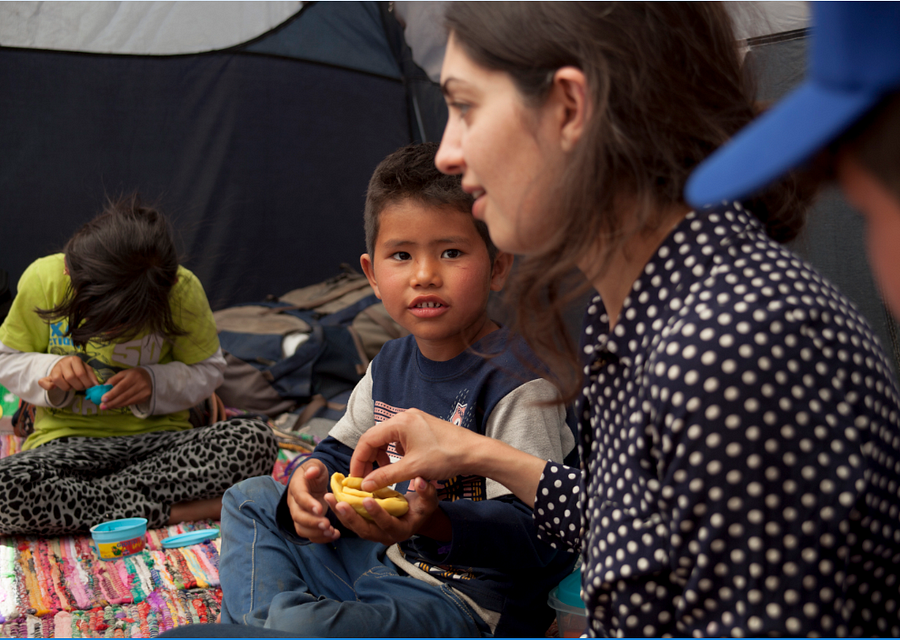
How is this work adapted to different cultural contexts?
We have seen a range of experiences having worked in camps, community centers, and with local governments. The programs that we run are specialized and having had these diverse experiences, we have been able to see what works well in each context. In terms of working with people from different backgrounds, we try and take into account the skills, knowledge, and background of the people we’re working with to tailor our activities to their specific needs.
We work to create spaces of resilience where people can process their emotions. They can express the stress they are feeling as well as their joy and have the opportunity to connect because we are focused on building communities around our work. We are hoping that through setting up these groups, we will become obsolete and this work can go on without external intervention. These principles and motivations guide every project that we do and tailor the projects according to different needs.
How is creating female spaces an especially powerful way to build resiliency for women and their communities?
Women do most of the heavy lifting in supporting their families. When you walk into a refugee camp, you’ll see mothers doing the dishes, doing the laundry, and looking after their children. It’s a stressful position to be in so we try to create spaces where women can connect with each other and have space to socialize. They know best what works for them so we try to create spaces where they can share their experiences.
We also do skills building trainings with all the groups we work with. We have workshops where mothers are connected with occupational therapists who can help them navigate the difficulties of parenting children in a refugee camp where there is very little support. We try to help build their skills and help them maintain a routine where they can have space for themselves. Even though people live very close together in refugee camps, they may not be able to build community ties given all the things they have to do and how limited space families have. It’s hard for people to get together and know each other unless there is a space for them to do it, and we try to build that safe space. There’s always a facilitator who is able to navigate the conversation and help the group recognize their strengths. Parenting children in a refugee camp is very hard and most of these people are doing a phenomenal job in keeping their children safe.
“The goal is to create programs that are sustainable. We don’t want to do work according to the current aid paradigm where you go to a country, set up an office, spend a lot of money, and then leave with a gap in services. Such a model creates dependency and does not strengthen the institutions that are needed to provide these services…We are trying to work differently in that we work with local organizations that can carry forward this work should RTI leave Greece.”
What is your vision for the Refugee Trauma Initiative?
The vision is to create a global organization that provides training and support to large organizations and governments on how to embed trauma-informed and therapeutic practices in their work. We are dedicated to providing holistic, tailored, and trauma-informed interventions for refugee wellbeing.


